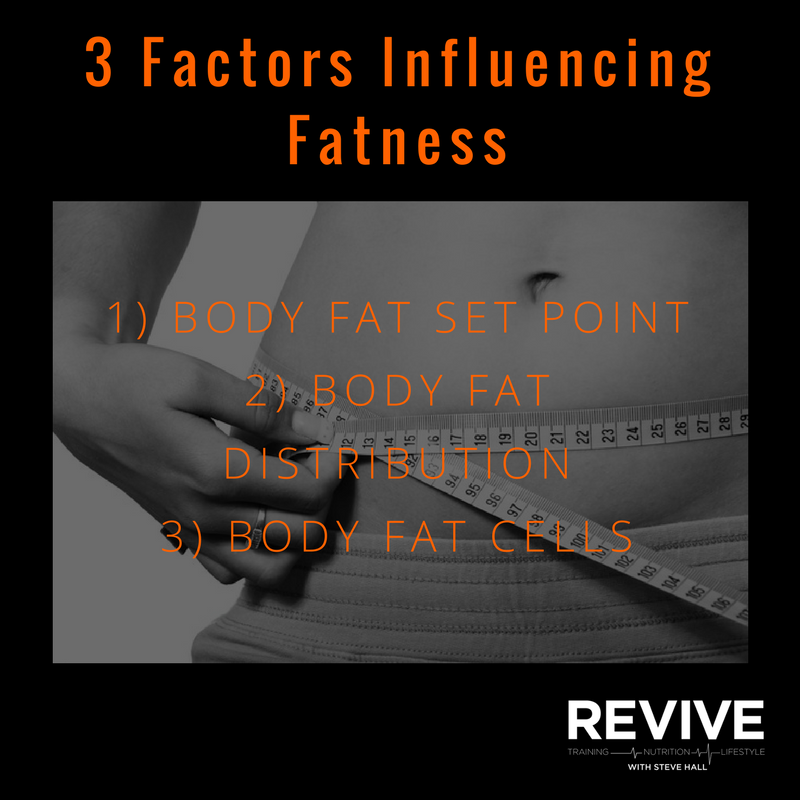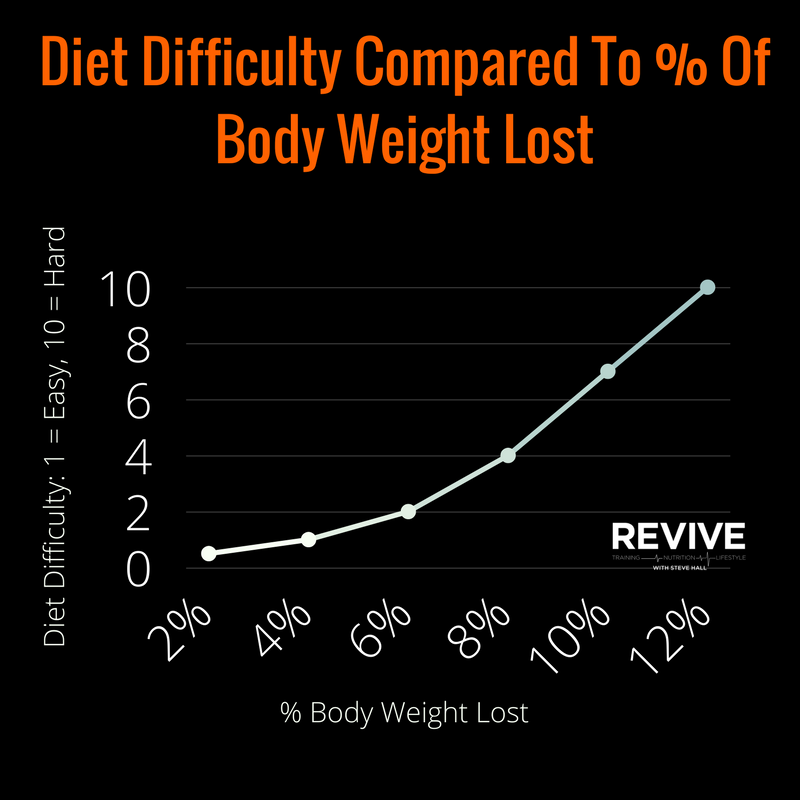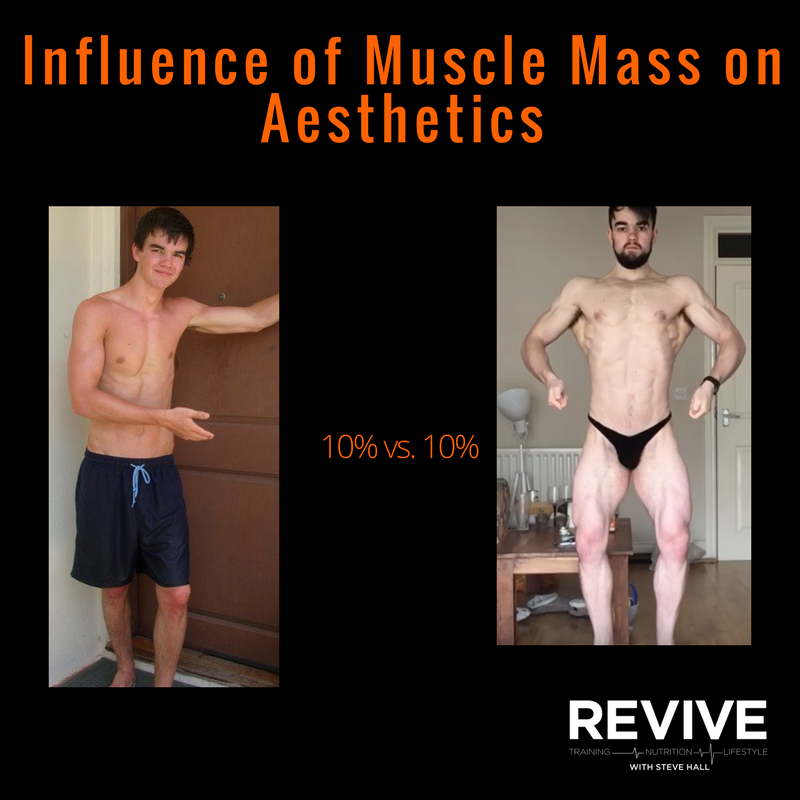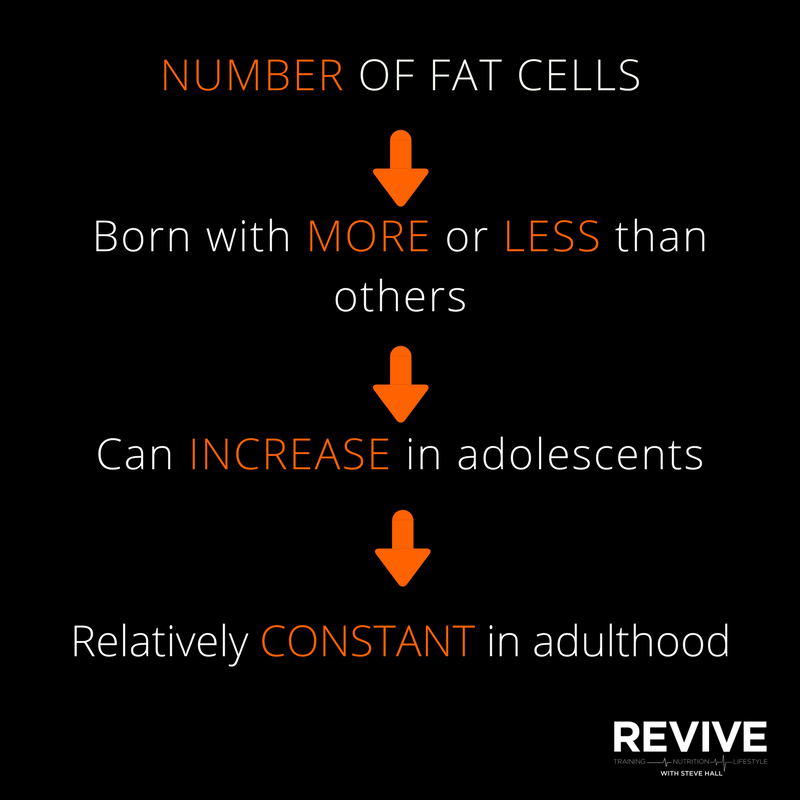
Revive Stronger
Does the ‘Fat Gene’ exist?
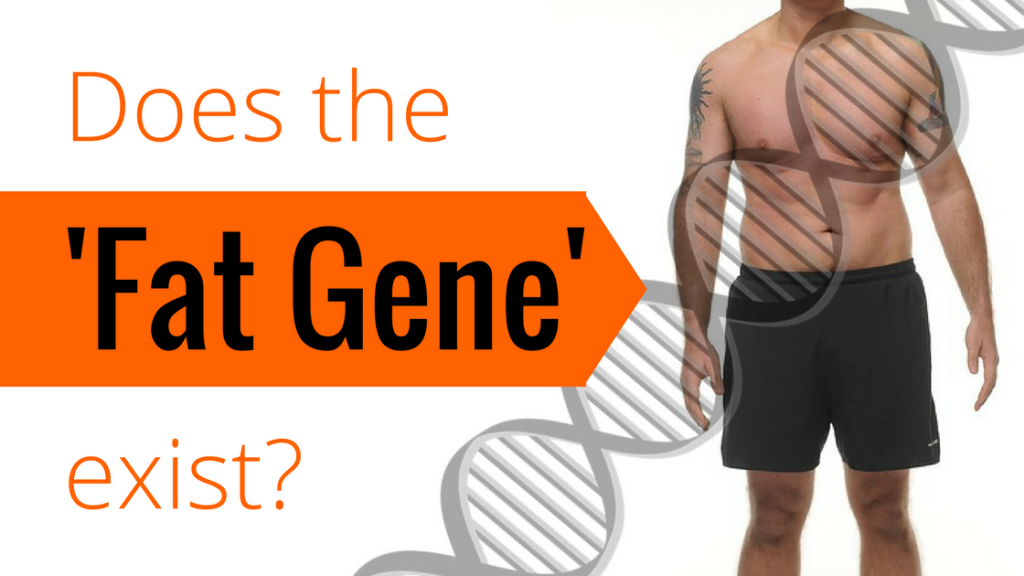
The age old question, do some people just have the fat gene? Well, the answer is yes.
Okay, article over, thanks for stopping by.
Sike, it’s only in extreme cases where people are actually biologically destined to put on fat. Today Revive Stronger intern Ryan Solomon is going to share with you the nuts and bolts behind this stuff, so take it away Ryan:
Genetics accounts for less than 1% of all cases of obesity, so we won’t be discussing those rare cases here.
Instead, we’ll be looking at “are some people just destined to be a bit fatter?”, not necessarily if people have a fat gene.
There’s three things in particular that we’re going to have to look at to give a solid answer to this question:
Table of Contents
1.] Body fat set-point theory
2.] Fat distribution
3.] Biology of fat cells
1.] Set point theory
Your body fat “set point” is a weight range, typically about 10-15 pounds, that your body is happy to be at, the range it performs best at. It’s like your body fat is set on cruise control, go too much under the set speed and the car (your body fat percentage) speeds up, go too far over the speed and the car slows down.
This is theorized to be one of the leading factors in why people can’t keep weight off after a diet, and why over 80% of people put all the weight back on from their diet within the next year.
[bctt tweet=”over 80% of people put all the weight back on from their diet within the next year” username=”revivestronger”]
All this being said, the body seems to fight weight loss more so than weight gain.
This is theorized to be due to evolutionary reasons.
Think about it like this, did cavemen have much of a pressure to not get fat?
No, they didn’t, because they were focusing on killing another animal to survive, not what to get on the dollar menu of a fast food joint. This means they didn’t have a surplus of energy at their fingertips… all they had were spears and rocks. So potentially due to evolutionary reasons, humans never really developed a defence mechanism against weight gain, because we haven’t really needed one.
On the flip side, did cavemen ever have a reason to not lose weight? Of course they did, starvation was a common occurrence of death, so the body had to develop ways to fight like hell from losing too much weight resulting in death (not good for bodybuilders dieting down for shows).
It’s important to note that this is a theory, and it’s not set in stone that every single person has a particular set point that they like hanging out at, but there is quite a bit of evidence supporting this idea.
What determines someone’s “set point”?
Your genetics and environmental situation starting way back at conception are thought to determine your set point. Although, insufficient exercise and slow weight gain can “reset” your set point to higher levels of body fat. Being that the average American adult gains 1-3 pounds
annually, 10 years down the road they could be looking at a very different set point, making it imperative to not gain too much body fat.
It’s pretty questionable if you can actually reset your set point to lower levels, but I personally believe you can. It has been theorized that if you lose about 10% of your body weight (at this point your body starts fighting weight loss pretty damn hard) and maintain that for 6 months, yes I said 6 months, then you can in fact “reset” your set point.
I’ve found this to be true in my personal experience. I lost roughly 60 pounds over the course of a couple of years. No, I didn’t stop after losing 10% of my body weight and maintain it for 6 months, but the process would have been much easier if I had at least taken a 3-4 week diet break after losing about 10%.
I’ve now maintained the same weight range of about 10-15 pounds for about a year, and have found that I have no problem maintaining this new range. My performance/progress in the gym is going well, my general feelings of well-being all feel normal, I feel satiated throughout
the day, and I feel as though I have plenty of energy, all of which indicating that I’m not below my set-point.
So what are typical body fat set point ranges?
- Males: 7-15%
- Females: 17-27%
Based on this theory, some people may just feel more “normal” at higher body fat levels, but this doesn’t mean that people need to be “fat”. To me, there’s no reason I can think of for why a human being would be destined for 20% body fat.
It does mean, though, that most people won’t be able to diet down to sub 7% body fat and maintain it, or even sub 10% for the majority of people. Most people will be able to progress faster, and just feel normal, in the 10-15% body fat range (add about 7-10% to those ranges for females).
If you feel better at the higher end of that range, embrace it. To me, sub 15% body fat still looks pretty damn good with quite a bit of muscle mass…. coming from a guy who used to be 20-25% BF… everything is relative. When I eventually compete, I’ll probably no longer feel pretty lean in the 12-15% body fat range
Practical Application
1.] Trying to stay sub 7-10% (17-27% for females) body fat year-round probably isn’t a sustainable approach for most people.
2.] Some people will just feel normal at relatively higher body fat levels, and make better progress in the gym at those levels.
3.] There’s still no reason to just “get fat” and use the excuse of “Bro, my set-point is 20%” because that is most likely not the case.
4.] If you were very overweight in the past, it may make it more difficult to stay lean because you have “re-set” to a higher set-point. Although my belief is that it can be lowered over time with consistent lifestyle changes.
5.] Good practice is to only try to lose about 10% of your body weight at a time. For example, a 200 pound individual wouldn’t aim to lose more than 20 pounds. After losing this weight they then could take a diet break where they eat at maintenance for about 3-4 weeks. I believe maintaining for 6 months is a bit excessive, but anything much shorter than this and you probably didn’t drastically reduce diet fatigue or settle into your new weight.
Now, this doesn’t fully answer the question of being destined to be fatter, all this tells us is that there’s a weight range that people feel best at, but it’s rare if this range is above 15-17% for guys (add 7-10% for girls), where you start to cross over to looking a bit less “athletic” and a bit more “chunky”.
2.] Body fat distribution
Body fat distribution is exactly what it sounds like, it’s how you personally distribute the body fat you have. This is one part genetics, and one part up to you. Let me explain below.
1.] Body fat distribution based on genetics:
Your genetics will determine the places of your body where you tend to hold more fat.
This means that the SAME total body fat % can look completely different on two individuals with everything else equal. Take person A with a longer torso who tends to hold fat in their legs, and take person B with a short torso who tends to hold fat over their stomach (me). Person A with the longer torso could have decent ab definition at 15% body fat, while the guy with the shorter torso and less favorable (unless you prefer lean extremities over abs) body fat distribution will probably have to get down to 10% body fat to get some decent ab definition.
2.] Up to you:
The amount of muscle you have will determine how a particular body fat % looks.
For example, a dude with a lot of muscle at 10% body fat is going to look pretty damn jacked, but another dude with hardly any muscle at 10% body fat is just going to look skinny, and could even have the dreaded “skinny fat” look… or he might have a flat four pack in half natty lighting and think he’s #shredded.
Body fat distribution based on genetics can either be a blessing or a curse for some people.
Typically though, no one has perfect body fat distribution. For example, if someone holds quite a bit of fat in their legs, they may also hold more fat in their arms or face, so they almost always have a less defined jaw line and arms. If someone holds more body fat in their mid section, they will probably have more defined arms, and a more defined jaw line, so it works both ways.
Even though there’s nothing we can really do about the genetic side of body fat distribution, it’s important to be aware of it. Your total body fat % may not be as low as you think only because you have abs, or it could be lower than you think if you don’t, depending on your personal distribution of fat and how much muscle you have.
Practical Application
1.] The recommendation of “Lean gain until you can’t see your abs” may not be appropriate for everyone, because some people may just distribute a touch more fat over their abs, so their total body fat levels are still under that 15-17% limit of where the gains cross over from being fairly lean to not so lean.
That being said, if you can see your abs, you’re still probably pretty lean and if you can’t see your abs, you’re probably not 10% body fat.
2.] The more muscle you have, the better higher body fat percentages will look.
3.] People who hold more fat over their mid section, may need to stay a bit leaner to feel comfortable. So a slower rate of weight gain would potentially be a good answer for these individuals, or more frequent mini cuts sprinkled in during massing phases.
4.] For bodybuilders wanting to step on stage, you don’t need to worry about fat distribution. When you’re stage lean, it doesn’t matter how you distribute your body fat, because you don’t have enough body fat to distribute.
So does this answer the question of if some people are destined to be fatter?
Not quite yet, but here’s what we now know. You are generally born with a body fat set point where you perform and feel best at, and you are going to distribute body fat in different places than others, but this does NOT mean that you were born to be FAT.
3.] Body fat cells
Aside from in-depth human biology; when people lose weight, they aren’t eliminating fat cells.
All they are doing is shrinking the fat cell.
The same thing happens when you gain weight, all you’re doing is filling out the existing fat cell.
Throughout adulthood, the number of body fat cells does not decrease, and it only increase in more extreme cases, including pregnancy, and becoming very overweight. That being said, the number of fat cells does increase pretty readily throughout adolescence. So if you were overweight as a kid, or throughout puberty, it’s likely that you have a bit more fat cells than individuals who were leaner during childhood.
A really cool study looked at people who had bariatric surgery (fancy talk for a surgery that makes people lose fat) and found that the participants, who lost on average 18 BMI points, still had the same number of fat cells a year after their surgery, as they did before their surgery, but the size of the cells were about ⅔ of the size before surgery.
Bad news: people who have an overabundance of fat cells can develop a deficiency in leptin… the hormone that suppresses appetite. This is one of the reasons why it can be so difficult for people to keep their weight off, because their appetite suppressing hormone just isn’t working as well as it should.
Here’s a crazy stat to support the previous point about increased fat cells in childhood leading to obesity in adulthood. Children who are classified as “overweight” between ages 10 and 13 have an 80% chance of being obese adults and only 10% of children classified as “normal weight” grow up to be obese adults.
Although, one could argue that the overweight children just have worse lifestyle behaviors, and those behaviors led them to becoming overweight as adults, and not necessarily the increased number of fat cells.
I’m willing to bet it’s a combination of the two.
Not only do people increase fat cells through childhood, but people are typically born with a different number of fat cells, but I refuse to believe that the difference would be significant enough to “force” anyone to become “fat”.
So if you were pretty overweight in the past, does that mean you’re screwed now?
Not at all.
With lifestyle changes you can definitely build and maintain a very impressive physique. That being said, it may be more difficult for you to stay lean while gaining muscle, because you already have the fat cells, so all they have to do is “fill out”. Also, it may mean that you just have more areas of “stubborn fat” when you diet down, because of the number of fat cells you have developed in those areas.
Practical Application
1.] “Dirty Bulking” is especially a bad idea because you could potentially increase the number of fat cells when you gain too much weight, too quickly.
2.] You may need to accept the fact that it’s going to be a bit more difficult for you to stay lean while trying to put on muscle if you’ve been overweight in the past.
3.] You may have a more difficult (you can definitely still do it) time getting super lean if you’ve been overweight.
4.] You may have to monitor calories a bit closer if you used to be pretty overweight because your appetite regulation isn’t quite right.
Conclusion
So, are some people just destined to be fat because of their genetics?
No, I sure as hell don’t think anyone is destined to be “fat”.
Someone may be destined to perform better at a higher body fat, or distribute more fat in undesirable places, or be born with more fat cells, but I refuse to believe that someone is genetically endowed to perform better at high body fat levels, distribute all of their fat in undesirable places, and to be born with a lot of fat cells.
Yes, it may take some people more time.
Yes some people just may have a more difficult time staying lean.
Yes, some people may just have to get leaner to see those precious and elusive abs.
BUT I believe that ANYONE can build a lean, muscular and strong physique, no matter what blueprint they were born with.
What Next?
More from Ryan Solomon (Revive Stronger intern & researcher):
Join our free facebook group or add us on snapchat (revivestronger) and ask your question there, I will respond asap. Or if you’re after a fresh training programme we have a free 4 week plan using DUP that you can download for free here.
One more thing… Do you have a friend who would love the above? Share this article with them and let me know what they think.
[bctt tweet=”Does the ‘Fat Gene’ exist?” username=”revivestronger”]
References:
- Set Point Settling Points and Bodyweight Regulation Part 1. Retrieved February 01, 2017, f
rom http://www.bodyrecomposition.com/fat-loss/set-points-settling-points-and-bodyweight-regulation-part-1.html/
- Spalding, K.L., Arner, E., Westermark, P.O., Bernard, S., Buchholz, B.A., Bergmann, O., Blomqvist, L., Hoffstedt, J., Näslund, E., Britton, T., Concha, H., Hassan, M., Rydén, M., Frisén, J., Arner, P. (2008). Dynamics of fat cell turnover in humans. Nature DOI:110.1038/nature06902
- Obesity In Children And Teens. Retrieved March 09, 2017, from http://www.aacap.org/AACAP/Families_and_Youth/Facts_for_Families/Facts_for_Families_Pages/Obesity_In_Children_And_Teens_79.aspx 4. Bariatric surgery. (2017, March 08). Retrieved March 09, 2017, from https://en.wikipedia.org/wiki/Bariatric_surgery
- Weight Control 101. Retrieved March 10, 2017, from http://www.dotfit.com/content-1450.html
- Week One: The Science of Set Point. (2014, December 12). Retrieved March 10, 2017, from http://www.bidmc.org/YourHealth/BIDMCInteractive/BreakThroughYourSetPoint/WeekOneTheScienceofSetPoint.aspx
We are a personal coaching service that helps you achieve your goals. We want you to become the best version of yourself.


